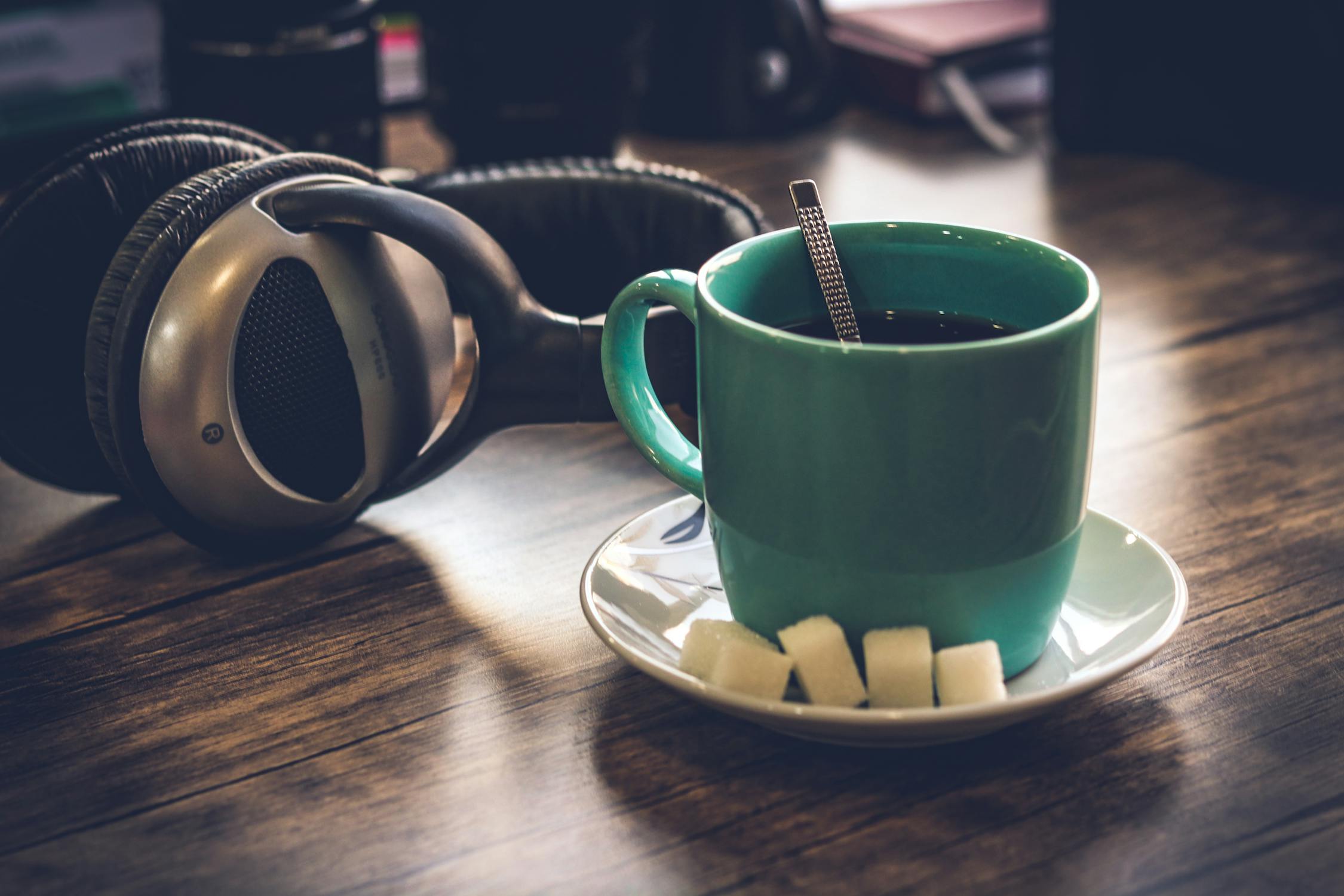
We all want to be happier, less stressed and anxious. But unless we make taking care of our mental health a routine habit – odds are it’ll end up at the bottom of our ‘to-do’ list.
As you reflect on your New Year’s intentions – don’t forget to include your mental health.
Habits that improve mental health include relaxation, journaling, exercise, social connection, spending time in nature, setting personal boundaries, and more.
***Disclaimer: This article is based on my own personal experience and not meant to be taken as professional or medical advice. Read full disclaimer here.***
Read on for 11 simple habits that improve mental health!
What are Good Habits for Mental Health?
Practicing good habits for mental health doesn’t have to be complicated or require a big time commitment. These habits prioritize your well being and allow your mind to calm down.
Keep in mind that each person is different, so don’t be afraid to experiment to find what works best for you. You don’t have to adopt all 11 of these habits. Instead, commit to adding only a few at a time into your daily or weekly routine.
Table of Contents:
- Deep Relaxation Regularly
- Move Your Body
- Cut Out Toxins
- Make Time for Self Reflection
- Practice Self-Compassion
- Less Time on Social Media
- Say No More Often
- Connect with Others
- Get Outdoors
- Get Quality Sleep
- Focus on What You Love
11 Simple Habits that Improve Mental Health

1. Deep Relaxation Regularly
This habit is most important because we often don’t make time to deeply relax. When our mind doesn’t get the rest it needs – it takes a toll on our mental health.
Sleeping or watching TV is not enough to put our minds in a truly deep, relaxed state. Instead, find a calming activity that takes your awareness out of your mind and into your body.
Activities to Deeply Relax:
- Meditation
- Yoga
- Mindfulness
- Progressive Muscle Relaxation
- Tai Chi
- Listen to calming music
- Take a hot bath
- Get a massage
These types of activities quiet noisy, racing thoughts. Our focus moves into our breath and body, giving our mind a much-needed break.
Deep relaxation also calms down our sympathetic nervous system – allowing us to turn off our brain’s ‘fight-or-flight’ response.
Make it a daily habit to deeply relax and calm your mind. This will activate your parasympathetic system, giving you a natural feeling of well-being and calm.
Easy Ways to Add it to Your Daily Routine
- Practice meditation for 5-10 minutes per day in the morning or before bed
- Adopt a 10-15 minute yoga or deep stretching routine
- Listen to a 5-10 minute guided Progressive Muscle Relaxation(PMR) technique before bed, while laying down. There are many PMR and meditation apps you can download on your smartphone

2. Move Your Body
We here this advice a lot when it comes to our mental health – but for good reason. We alloften forget the strong connection between our bodies and our minds.
When we don’t take care of our bodies, our mental health suffers too. We feel stressed, our mood dips, and we lose our motivation.
When we’re not physically active regularly it’s also harder to process and release difficult emotions. Exercising gives our minds a much-needed break. It fills us with feel-good endorphins which reduces stress and anxiety.
Easy Ways to Add it to Your Daily Routine
- Find something active you genuinely enjoy doing, such as: dancing, yoga, walking, or a fun fitness class
- Start small, commit to just 10-15 minutes and work your way up slowly
- Make it social: find gym buddies, walking/hiking pals, etc. This way you get to catch up with friends while keeping each other accountable for physical and mental wellness.
More Recent Posts
- Add Mindfulness to Your Gratitude Practice
- How to Live a Mindful Life: 5 Keys
- The Fear of Being Ordinary

3. Cut Out Toxins
Another habit that improves mental health is to stop ingesting toxins that are harmful for our minds and bodies.
These include:
- Large amounts of Caffeine
- Drugs, tobacco
- Alcohol
- Unhealthy foods: sugars, fast food, refined carbs
Limit Caffeine
Caffeine can make anxiety much worse. According to one study, caffeine consumption increases anxiety levels, and makes those with panic disorder more prone to panic attacks.
If you struggle with anxiety, try reducing caffeine intake or cutting it out completely. Caffeine blocks the brain chemical adenosine which helps calms you down.
And let’s not forget that too much caffeine interrupts your sleep cycle, preventing you from getting quality sleep, which will make you even more tired throughout the day.

Curb Your Sugar Addiction
Too much sugar is not just bad for your physical health, but for your mental health too. It can be hard to cut down on sugar because, like caffeine, it can be quite addicting.
According to Healthline.com, “…a 2017 study found that men who consumed a high amount of sugar (67 grams or more each day) were 23 percent more likely to receive a diagnosis of clinical depression within 5 years.”
Studies show this link between sugar and depression is also found in women. So while it may be hard to give up junk foods, it’ll be well worth it.
It’s much easier to improve your diet if you do it in small, baby steps. Don’t try to upheave your whole diet all at once with big, drastic change. Instead, focus on cutting down on one unhealthy habit at a time in gradual amounts.
Cut Out Unnatural Substances
If you can in a safe way, limit unnatural substances such as prescription medications. Of course, consult your doctor first or ask if there’s a natural alternative. Anything that takes a toll on your body will also negatively impact your mental health.
Also, for some women, birth control pills can cause intense mood swings, anxiety and depression. So if you struggle with this, consider switching to a non-hormonal contraceptive instead.
Sarah E. Hill, PhD, describes this in her article and TED Talk. “The researchers found that women on hormonal contraceptives were 50 percent more likely to be diagnosed with depression six months later, compared with women who were not prescribed hormonal contraceptives during this time.”
Easy Ways to Add it to Your Daily Routine
- Make your daily coffee half-caffeinated by mixing with decaf beans
- Cut down on sugary soft drinks
- Limit junk foods to only 1-2x a week
- Swap hormonal contraceptives with a non-hormonal alternative

4. Make Time for Self Reflection
Self reflection is another good mental health habit. It can be done through journaling, or just taking some quiet time to check in with yourself. This can be done on a long walk, hot bath, or by journaling.
Self reflection is about tuning into your deeper thoughts and feelings. It’s also an opportunity to identify negative thoughts or unhealthy behavioral patterns. Then, find solutions for improving on them.
Without self reflection, we tend to think that our negative emotions are caused solely by things outside of ourselves: situations or other people. But if we look closer, we’ll find that it’s often our own negative mindsets that are causing us pain.
This might seem overly simple, but it can be extremely beneficial for your mental health.
After all, you can’t improve upon what you’re not even aware of. So it’s vital to check in with yourself regularly – reflect on how you can improve your mental and emotional states.
Read More
- 10 Calming Mindfulness Quotes to Relieve Stress
- 10 Powerful Ways Mindfulness Changed My Life
- How to Mindfully Embrace Fear & Anxiety
Easy Ways to Add it to Your Daily Routine
- Write in a physical or digital journal 1-3x a week for 30+ minutes, preferably in the mornings or before going to bed
- Take a self-reflective solo walk around your neighborhood 1x a week
- Take a hot bath 1-3x a week , with plenty of time and silence to be in your thoughts

5. Practice Self-Compassion
This mental health habit sounds extremely simple, but it’s actually more difficult than we realize. Making it a habit to always be kind to ourselves takes practice.
It’s all too easy to judge and criticize ourselves mentally, especially when we make mistakes. And we’re often not even aware of how much we berate ourselves mentally.
We must remember that talking to ourselves in non-loving ways (criticism, judgement, shaming, etc.) does not serve any beneficial purpose. It only keeps us stuck in shame and afraid to move forward.
Alternatively, speaking to ourselves in a way a close, compassionate friend would has tons of mental health benefits. It eases anxiety, and helps us build self-worth and emotional resiliency.
Learn more here: self-compassion.org
Easy Ways to Add it to Your Daily Routine
- Throughout the day, become aware of how often you are not kind to yourself in your thoughts (judgements, name calling, criticism)
- When you notice yourself not being kind, immediately replace it with a compassionate response instead (think of what you would say to your child or best friend)
- Keep a journal and write down negative thoughts, and then write down a compassionate rebuttal to them

6. Less Time on Social Media
Another simple habit that improves mental health is to limit time spent on social media.
Social media negatively affects our mental health:
- It fills our heads with too much dopamine, making it harder to regain feelings of satisfaction from normal, everyday living
- Disrupts our sleep patterns
- Studies have linked it with depression, anxiety and increased feelings of loneliness
According to one study, researchers found a strong link between Facebook use and a decline in mental health among college students.

You don’t have to cut social media out completely, but start by reducing it more and more. Notice how you feel after.
Starting your day or ending it on social media is an especially bad habit because our minds our most susceptible then. Instead, fill your head with positive, calming messages in the mornings and nights.
Easy Ways to Add it to Your Daily Routine
- Set a limited, designated time to go on social media
- Stop going on social media before bed or upon awakening
- Replace social media use with healthier habits such as reading, exercise, or in-person conversation
- Use phone apps to limit your time on social media

7. Say No More Often
Trying to please everyone takes a negative toll on your mental health. Therefore, make it a habit to say ‘no’ regularly.
Nicole LePera (@the.holistic.psychologist) writes:
“Putting everyone else’s needs before your own isn’t selfless, it’s self abandonment. Society glorifies this, and it’s a massive reason why so many of us are unwell.“
Sometimes when we say no to others they will be disappointed with us. But we must learn to start being okay with disappointing others.
The harsh truth is there’s no way to completely avoid disapproval from others – it’s an inevitable part of life. It’s emotionally and mentally exhausting trying to avoid things that we ultimately don’t have control over.
But even when we can do things to avoid others’ disapproval – it’s not worth the massive toll it takes on our wellbeing. Loving ourselves means realizing that we can’t please everyone – nor are we required to.
Make it a habit to maintain healthy boundaries with others. Prioritize your own needs. Embrace the power of ‘no’ – and your whole mind, body, and soul will thank you for it.
Easy Ways to Add it to Your Daily Routine
- Notice situations or people that leave you feeling drained. Instead of quitting, or having to ban a person from your life completely, find a way to set stronger boundaries
- Work on letting go of guilt when prioritizing your needs and personal boundaries
- Reflect on this topic in your journal routine. Ask yourself – ‘Where am I lacking personal boundaries? Do I often put pleasing others above my own needs and wellbeing? How does this affect me mentally, emotionally, physically?’

8. Connect with Others
Make time to connect with others on a regular basis. This is a crucial part of habits that improve mental health.
Having healthy relationships makes us feel supported and boosts feel good hormones such as oxytocin. On the other hand, feeling lonely makes us more vulnerable to anxiety, depression, and suicidal thoughts.
You don’t need to have a ton of friends to feel connected. Rather, spend time with several close friends and build strong bonds.
It’s so easy to get caught up in the busy-ness of life that we forget to make time for social connection. If you’re lacking in the friend department, or have social anxiety, try a friend connection app such as Bumble BFF , Girlfriend Social, or Meetup.
Easy Ways to Add it to Your Daily Routine
- Schedule quality time with friends or family at least 1-2x a month
- Make new friends by attending social meet ups, volunteering, joining a club, or connecting through friend finding apps
- Practice vulnerability with those you trust: it’s okay to vent when you’re stressed or ask for emotional support when needed

9. Get Outdoors
Did you know that Americans spend an average of 10 hours a day in front of a screen? It’s no wonder we’re so stressed out.
Studies have found that being in nature has many positive benefits for our mental health such as lowered stress, improved mood, increase in attention and empathy, and less risk for psychiatric disorders.
“You can boost your mood just by walking in nature, even in urban nature. And the sense of connection you have with the natural world seems to contribute to happiness even when you’re not physically immersed in nature.” ~ Lisa Nisbet, PhD (apa.org)
Being out in nature is fun, free, and will improve your mood. Give it a try and add it to your regular habits that improve mental health!
Easy Ways to Add it to Your Daily Routine
- Take short walks around your neighborhood or in a park
- Add more outdoor activities to your weekend plans
- Connect with friends over shared outdoor hobbies
- Bike to work instead of driving

10. Get Quality Sleep
We all know what it feels like to lack a good night’s sleep – we’re irritated, groggy, and it’s hard to focus. So it’s no surprise that consistently not getting enough quality sleep takes a toll on our mental health.
According to columbiapsychiatry.org, “Poor or insufficient sleep has been found to increase negative emotional responses to stressors and to decrease positive emotions.”
A good night’s sleep is more than just getting enough hours. The quality of sleep is also crucial for your mental health.
Many factors could be disrupting your sleep quality such as:
- Substances: caffeine, nicotine, alcohol, antihistamines
- Prescription medications including beta blockers, alpha blockers and antidepressants
- Going on your smartphone before bed
- Not breathing in enough air at night caused by sleep apnea, congestion, or habitual mouth breathing
- Too much light, background noise or too much heat in your sleep environment
Easy Ways to Add it to Your Daily Routine
Some simple tips to improve your sleep:
- Make sure your sleep environment is dark, cool, and quiet
- Reduce your intake of alcohol and caffeine, especially within 3 hours before bed
- Avoid stressful or mentally stimulating activities close to bedtime
- Create a relaxing pre-sleep routine such as taking a bath, light reading, journaling or meditation
- Don’t exercise or eat heavy meals less than 3 hours before bed

11. Focus on What You Love
Maintaining a positive mental attitude is so important for your mental health. An easy way to do this is to focus on what you love.
It’s only natural for our minds to complain about all that’s lacking and wrong in our lives. But doing this creates a limited, negative perspective.
Instead, focus on what’s right in your life, what you appreciate, and the people and things you love. You’ll instantly feel more alive, more inspired, and in a better mood.

Practice Daily Gratitude
Every day, preferably in the morning, take five minutes to reflect on what you’re grateful for. Start with only 2-3 things. It could be your health, your family, or your cozy apartment. Really soak in the feelings of gratitude. With practice, it’ll it’ll become a natural habit.
Do What You Love
Make time to do things that fill you with joy. These things might seem silly, but they make you feel good. It could be playing an instrument, watching a funny movie, or rocking out to live music.
“…Connecting to what we love, and what loves us, is indispensable to the spirit. It’s essential to our self-love and well-being.” ~ Sonia Choquette (The Answer is Simple)
When we make time to do the things we love – we start to feel alive again. We’re filled with joy, passion, and feel grounded in who we truly are.
Easy Ways to Add it to Your Daily Routine
- Make a list of things you love to do, it could be cooking, dancing, going to the beach, etc.
- Whenever you’re feeling down or stressed, make time to do something from your list
- Block a couple hours once a week for a hobby you enjoy
- Adopt a five minute daily gratitude practice

Small Habits Can Improve Mental Health
Add these 11 habits that improve mental health to your daily and weekly routines! Remember being proactive is key for maintaining good health – both physical and mental health.
Even seemingly small habits can lead to massive positive changes in our daily lives. So don’t wait – create your own mental health routine and include these 11 habits that improve mental health!
Thank you for reading this post! I’d love to hear from you – What habits do you practice to improve mental health?





